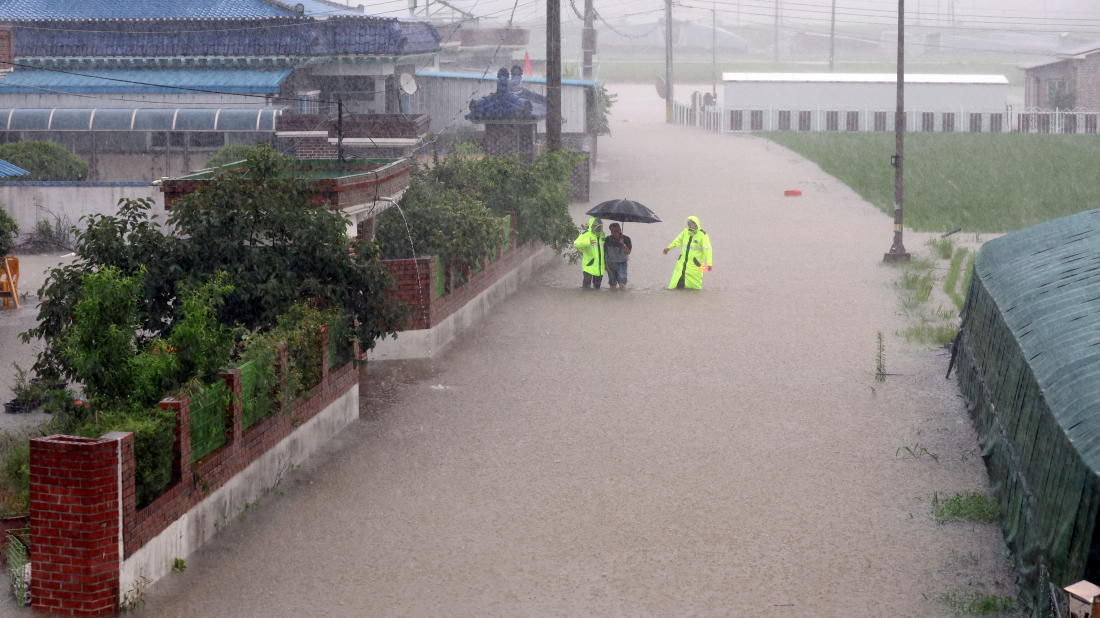Spain to probe X, Meta and TikTok over AI-generated child sexual abuse content
Spain’s government has instructed prosecutors to investigate social media platforms X, Meta and TikTok over the alleged creation and dissemination o...

More than 2,500 people have had to leave their homes in southern South Korean after torrential rains swept across the country during Sunday night, inundating houses and roads in six major cities and provinces. Emergency shelters filled as families sought refuge.
Muan county bore the brunt of the storm, recording nearly 290 millimetres of rain from midnight Sunday to Monday morning. The sudden deluge turned streets into rivers and left one man in his 60s dead in a local stream. Authorities are still investigating if the fatality is directly linked to the flooding.
As the waters rose, emergency shelters opened across the southern provinces, giving thousands of residents a safe place to wait out the storm. The Central Disaster and Safety Countermeasure Headquarters coordinated the response, providing regular updates through Yonhap News Agency.
The threat, however, is far from over according to Meteorologists who warn that more rain is on the way, with particularly heavy downpours forecast for South Gyeongsang and surrounding areas.
While the rainfall has brought some respite from recent heatwaves—lifting temperature alerts in several regions—the risk of further flooding remains high. Temperatures are expected to climb back to 29–34 degrees Celsius.
Faced with the growing threat of extreme weather, the government has poured resources into upgrading flood response systems, early warning networks, and resilient infrastructure. Yet experts caution that storms like these may soon become the rule, not the exception.
Iran’s Supreme National Security Council Secretary Ali Larijani said the United States could evaluate its own interests separately from those of Israel in ongoing negotiations between Tehran and Washington.
U.S. Secretary of State Marco Rubio on Sunday (15 February) called it “troubling” a report by five European allies blaming Russia for killing late Kremlin critic Alexei Navalny using a toxin from poison dart frogs.
Cuba’s fuel crisis has turned into a waste crisis, with rubbish piling up on most street corners in Havana as many collection trucks lack enough petrol to operate.
Norway is holding a commanding lead in the medal standings with 12 golds and a total of 26, with Italy having an historic performance on home soil on the ninth day of the Milano-Cortina Winter Olympics on Sunday (15 February).
Iran’s Revolutionary Guards navy held military exercises in the Strait of Hormuz on Monday (16 February), state-linked media reported. The drill took place a day before renewed nuclear negotiations between Tehran and Washington in Geneva.
The administration of U.S. President Donald Trump on Thursday (12 February) announced the repeal of a scientific finding that greenhouse gas emissions endanger human health, and eliminated federal tailpipe emissions standards for cars and trucks.
Tropical Cyclone Gezani has killed at least 31 people and left four others missing after tearing through eastern Madagascar, the government said on Wednesday, with the island nation’s second-largest city bearing the brunt of the destruction.
Rivers and reservoirs across Spain and Portugal were on the verge of overflowing on Wednesday as a new weather front pounded the Iberian peninsula, compounding damage from last week's Storm Kristin.
Morocco has evacuated more than 100,000 people from four provinces after heavy rainfall triggered flash floods across several northern regions, the Interior Ministry said on Wednesday.
Greenland registered its warmest January on record, sharpening concerns over how fast-rising Arctic temperatures are reshaping core parts of the island’s economy.
You can download the AnewZ application from Play Store and the App Store.

What is your opinion on this topic?
Leave the first comment